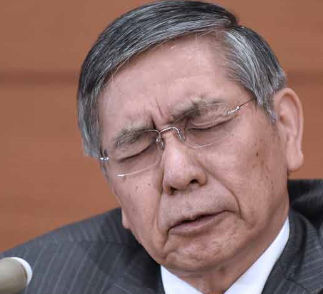Haruhiko Kuroda is most likely to be reappointed as BOJ governor for a second term

Although Japanese prime minister Shinzo Abe is still denying it this morning, Kuroda is the favourite by a mile to land a second term as BOJ governor.
Everyone would still expect further "powerful monetary easing" once the announcement is made, and that things will remain the same as it is in almost a perpetual timeline for the BOJ.
But there will be a time when more of the same isn't going to cut it for the BOJ.
For all the hardwork put in to grow the Japanese economy and tighten the labour market, the most difficult part is yet to come. And the struggle is already reflected right now. The BOJ can't even move an inch towards tightening policy without the market jumping on and sending the Japanese yen higher.
That's not a conundrum that the BOJ will want to have when it actually does move away from its easing policies in the future.
However, in order to do so, they must first solve the inflation puzzle. Synchronised global growth is a positive note that is going to indirectly help the Japanese economy, but it's not going to spur inflation to reach the BOJ's 2% target.
And even when it does start creeping up, what steps will the BOJ pursue to exit from its easing policies? What happens to ETF purchases? What happens to the YCC policy? What happens to bond purchases? Which tools should they remove first?
There are still a lot of questions to be answered, and Kuroda's reappointment doesn't mean Abe will want the BOJ to remain indecisive and silent about things. It's only the first step in a long process for the BOJ to start moving away from easing policies and at the same time "hold the market's hand" while doing so.
--
Savage crash - RIP Cryptocurrencies? Five insights from the ASAC Fund.



